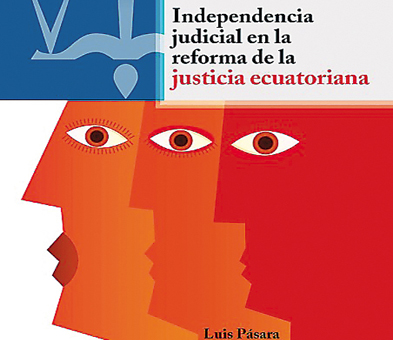In “Independencia judicial en la reforma de la justicia ecuatoriana,” the Due Process of Law Foundation argues that the Ecuadorian judiciary’s independence vis-à-vis other branches of government has been compromised. Based on a review of high-profile court cases, Consejo de la Judicatura (Judicial Council) resolutions, official statements, and more than 20 interviews with government workers, the report raises questions about the politicization of the Judicial Council, which has the power to discipline and remove judges, and the use of the courts to pursue government critics. The report concludes that judicial independence will ultimately require the Correa administration to cease its interference in the courts, and to overhaul the Judicial Council to ensure impartiality and transparency.
In its report, “Resseguro no Brasil: desafios e oportunidades da abertura,” the Centro Brasileiro de Relações Internacionais (Brazilian Center for International Relations) examines the evolution of Brazil’s re-insurance industry since it was privatized in 2007. While acknowledging challenges, the report strikes an optimistic note. Not only has Brazil seen average insurance costs drop, but local reinsurers have begun to upgrade their services and business practices. For sustained growth, the report recommends greater harmonization with international industry standards, transforming the Superintendéndia de Seguros Privados (Superintendence of Private Insurance) into an independent agency, and privatizing the country’s Seguro de Acidente de Trabalho (Workplace Injury Insurance).
After years of political and economic progress, Chile, Colombia, Mexico, and Peru are on their way to becoming regional leaders, much like the Asian Tigers. In “The Pacific Pumas: An Emerging Model for Emerging Markets,” the Bertelsmann Foundation analyzes each country’s trajectory to economic and political stability, as well as their opportunities for further integration into international trade networks, and evaluates each country’s potential as strategic partners for Europe, the U.S. and East Asia—and particularly China. The report suggests that to seize these opportunities, the Pumas must focus on difficult reforms at home, deeper integration within the Pacific Alliance, and meaningful trade agreements with global partners.





